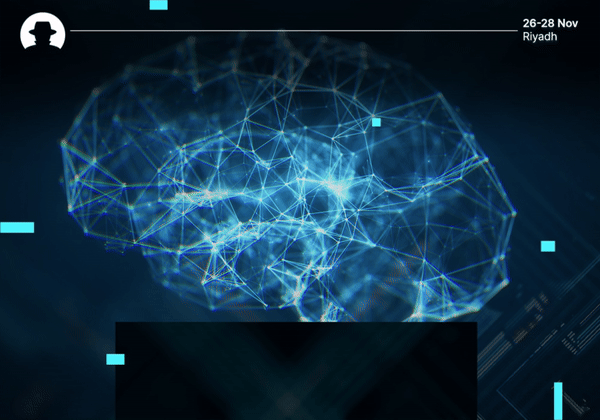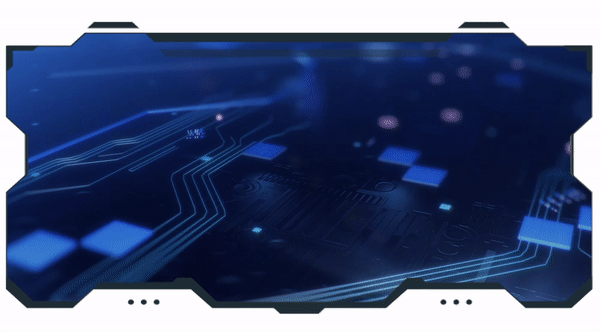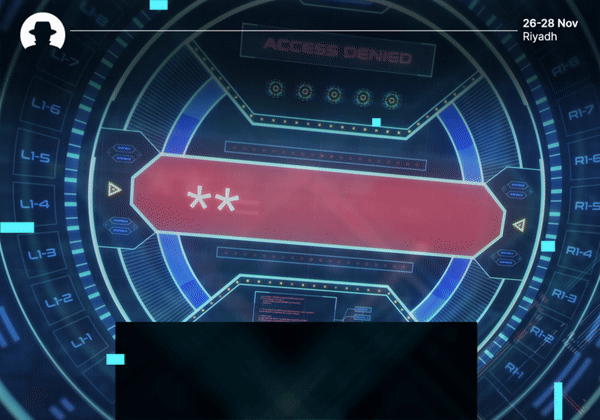
Let's talk about neurodiversity in cybersecurity
We invite neurodiverse cybersecurity professionals and employers to share their perspective on awareness, inclusivity, and the benefits of neurodiversity in the cybersecurity sector.
Read More
Welcome to the 2,900 cyber warriors who have joined us last week. 🥳
Each week we bring you insider insights from the Black Hat MEA community – including interviews with industry experts, new cybersecurity innovations, and key moments from the #BHMEA23 keynote stage.
If you haven’t already, subscribe here to receive these newsletters on your LinkedIn feed.
The most meaningful impact that the cybersecurity industry can have on communities, on society, and on the whole world.
We asked #BHMEA23 exhibitor Ilyass Rahmani (Co-Founder and CTO at NearSecure) for the lowdown on his career so far, and what kind of cyberattacks pose the biggest threat right now.
During that interview, Rahmani said this:
“I feel very fortunate to be able to work in a field that I am passionate about and that has such a significant impact on society.”
And those words have stuck with us: because it’s easy to get caught up in the tech, but cybersecurity isn’t just about the infrastructure that companies build to protect against attack. Cybersecurity is really about people.
Being able to understand and influence human behaviour is a key skill for cybercriminals. And cybersecurity processes can’t be effective without people who know what their role is when it comes to protecting an overall network infrastructure.
As Rahmani put it,
“By providing cybersecurity training to all employees, organisations can help ensure that everyone understands the risks and is equipped with the knowledge and skills they need to help prevent cyberattacks. This includes not just IT and security teams, but also non-technical employees who may be targeted in phishing attacks or social engineering scams.”
When an organisation’s entire team has a solid understanding of the unique cybersecurity challenges and protection measures they’re working with, they become crucial actors in the safety of that organisation. And they’ll know exactly what they need to do to help minimise damage when a breach does happen.

Ineffective cybersecurity can make life worse.
Researchers at the UK’s University of Oxford identified 57 different ways that cyberattacks can have a negative impact on individuals, businesses and nations. All of those negative impacts came under one of five key areas of cyber-harm:
👉 Physical/digital (such as loss of life or infrastructure damage)
👉 Economic (impact on profits, fall in share prices, or regulatory fines)
👉 Psychological (such as depression, embarrassment or shame)
👉 Reputational (including damaged relationships with customers, media scrutiny, or loss of important team members)
👉 Social/societal (disruption to daily life, caused by impact on critical services or diminished trust in technology)
On the flipside, good cybersecurity infrastructure doesn’t just protect data or save money – it makes life better.
As we shift further into the digital era and more and more of our lives exist in virtual spaces, cybersecurity is the difference between safety and harm. Between comfort and fear.
It is cybersecurity services, practices and training that will ensure the supply chains for essential goods (like food and medicine) are secure and undisrupted by criminal threat; that citizens have autonomy over their own data and can trust companies and governments enough to share their data willingly; and that we can enjoy the benefits of digitisation without the fear of harm.
Read our interview with Ilyass Rahmani here.
Black Hat MEA is back again from 📅 14 - 16 November 2023. Interested to be a part of it? Register now.
Join the conversation online using #BHMEA23 and @Blackhatmea
Join the newsletter to receive the latest updates in your inbox.

We invite neurodiverse cybersecurity professionals and employers to share their perspective on awareness, inclusivity, and the benefits of neurodiversity in the cybersecurity sector.
Read More
We look at the advancements of ransomware tech and social engineering strategies over time.
Read More